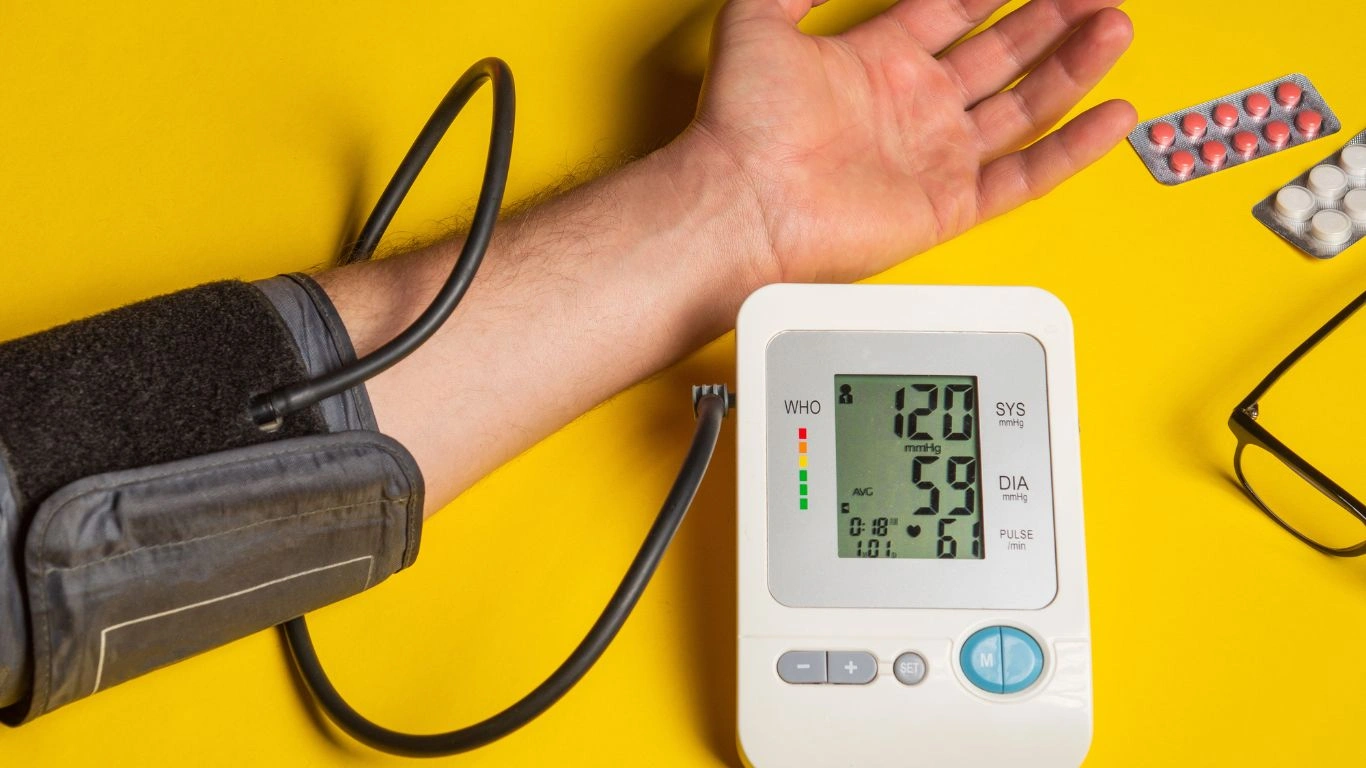The Effects of MSG on Blood Pressure: Hidden Dangers Revealed
As someone who’s been working in the field of hypertension for years, I’ve seen how important it is to really dig deep into the factors that affect blood pressure. One of the lesser-discussed but fascinating areas I’ve come across is how certain foods can influence blood pressure in unexpected ways. Take monosodium glutamate (MSG), for example. Known for its ability to enhance flavor, MSG has been a staple in many processed foods for decades. But what about its effects on blood pressure? Can that savory taste boost more than just your meal’s flavor? Let’s take a closer look.
The Basics of Blood Pressure and How It Works
To really understand the potential effects of MSG on blood pressure, we first need to brush up on how blood pressure works in the body. Blood pressure is the force that your blood exerts against the walls of your blood vessels. It’s measured in two numbers: systolic pressure (the higher number, which occurs when your heart beats) and diastolic pressure (the lower number, which occurs when your heart is at rest between beats). These numbers are a good indicator of how hard your heart is working to pump blood through your body.
Typically, a normal blood pressure reading is around 120/80 mmHg. Anything higher, and you might be entering the zone of prehypertension or hypertension, which is basically high blood pressure. As you can imagine, hypertension is a big deal—it can lead to heart disease, kidney damage, and even stroke over time. But is MSG somehow playing a role in these numbers? That’s where things get a little murky, but interesting.

What Is MSG, Exactly?
Before we dive into the effects, let’s take a quick moment to understand what MSG actually is. Monosodium glutamate is a flavor enhancer that’s chemically made from glutamic acid, an amino acid naturally found in foods like tomatoes, cheese, and soy. It’s commonly used in processed foods, soups, snacks, and even in restaurant kitchens to add that umami punch to a dish.
For many people, MSG has gotten a bad rap over the years, primarily because of reports about it causing headaches, sweating, and other symptoms that became part of what’s been dubbed the “Chinese Restaurant Syndrome.” However, research has shown that these symptoms are rare and often tied to sensitivities that are not typical for the average person. Despite this, some still worry about its long-term health effects—especially when it comes to blood pressure. So, does MSG really deserve this reputation, or is it just another food fad fear?
The Debate: Does MSG Affect Blood Pressure?
The jury is still out on this one, but let’s look at the research. There have been some studies that suggest a potential link between high MSG consumption and increased blood pressure, particularly in people who are sensitive to sodium or have existing hypertension. While it’s not a guarantee that MSG will spike your blood pressure, it might contribute to problems if you’re already on the edge.
Here’s where things get a bit tricky. We know that sodium, which is a key component of MSG, can cause the body to retain water, which in turn increases the volume of blood in the vessels and raises blood pressure. In fact, sodium is a well-known culprit in cases of high blood pressure. But MSG contains much less sodium than salt, so some experts argue that the effects might not be as pronounced. This doesn’t mean it’s completely harmless, though.
MSG and Blood Pressure: The Sensitivity Factor
There are some individuals who seem to have a sensitivity to MSG, and for them, it could potentially trigger an increase in blood pressure. One 2015 study found that high levels of MSG in the diet could affect people with high blood pressure more significantly, especially those who already have a predisposition to hypertension. In these individuals, the effects of MSG might be more pronounced because their bodies might be more sensitive to changes in sodium intake.
In my own practice, I’ve seen patients who experience slight increases in blood pressure after consuming foods high in MSG. But interestingly, the reaction isn’t consistent across the board. Some people are totally fine, while others see a small uptick in their readings. This variability is what makes MSG a tricky substance to study and understand definitively.
What Do Experts Recommend?
For the average person with no underlying health conditions, moderate consumption of MSG is generally considered safe. However, if you’re already struggling with high blood pressure, it might be worth being cautious about how much MSG you’re consuming. After all, sodium can sneak into your diet in more places than you’d expect, and every little bit can add up. It’s not just the salt shaker on the table you need to worry about.
Some experts recommend being mindful of MSG intake and opting for more whole foods, which are naturally lower in sodium and free from additives like MSG. In fact, replacing processed foods with fresh, home-cooked meals might be one of the easiest ways to improve overall blood pressure management. This might sound like a bit of a hassle, but trust me—your heart will thank you in the long run.
Why Monitor MSG Intake?
At the end of the day, monitoring MSG intake comes down to how sensitive your body is to it. While the research is still evolving, the basic rule of thumb is to stay aware of what you’re eating. Processed foods are notorious for sneaking in MSG, so keep an eye on labels if you’re watching your blood pressure. If you’re looking to cut back, focusing on whole, unprocessed foods is always a good step toward better health.

The Role of Diet in Managing Blood Pressure
Diet plays a huge role in managing blood pressure. While MSG may be a potential factor for some individuals, it’s just one piece of the puzzle. You might be wondering, “What can I do to manage my blood pressure if I’m worried about MSG?” Well, there’s a lot more to it than just cutting out one ingredient.
- Reduce sodium intake: As mentioned, sodium is a major contributor to high blood pressure. Cutting back on salt is one of the best things you can do for your heart.
- Eat more potassium-rich foods: Foods like bananas, spinach, and sweet potatoes are rich in potassium, which can help counteract the effects of sodium.
- Focus on whole grains and lean proteins: These foods are heart-healthy and can help maintain stable blood pressure levels.
- Exercise regularly: Physical activity helps keep your heart and blood vessels healthy, which in turn helps regulate blood pressure.
Making these changes might not only reduce your blood pressure but also help you feel better overall. And honestly, you don’t have to take drastic measures—little tweaks can go a long way!

How MSG Affects People with Hypertension
If you’re someone who already struggles with high blood pressure, the topic of MSG can feel a bit more urgent. As I’ve seen in my years of experience working with hypertensive patients, it’s not just about the numbers on the blood pressure monitor—it’s also about how certain foods can trigger fluctuations, even in small doses. For some people, MSG could be one of those triggers, and understanding why could help you manage your health better.
Research has suggested that individuals with existing hypertension or a tendency toward high blood pressure might experience more noticeable changes after consuming MSG. The reason? People with high blood pressure are often more sensitive to sodium, and because MSG contains sodium, it can contribute to water retention and blood vessel constriction. Even though the amount of sodium in MSG isn’t as high as regular table salt, the cumulative effect of consuming MSG-laden foods regularly could still play a part in elevating blood pressure over time.

Scientific Evidence on MSG and Hypertension
When I dig into the scientific literature on MSG’s impact on blood pressure, it’s pretty clear that the jury is still out. There’s no definitive answer, but there’s certainly a trend worth noting. Some studies have found that people who consume high levels of MSG are more likely to experience elevated blood pressure. However, it’s not all black and white. In fact, some studies have failed to establish any direct link between MSG and high blood pressure. What I find interesting is that most of these studies are on people who already have an existing sensitivity to MSG or have high sodium intake as part of their overall diet. So, it’s not just MSG—it’s about the bigger picture of how your body reacts to sodium.
The Role of Sodium in High Blood Pressure
To understand why MSG might have an impact, we need to take a deeper dive into how sodium affects blood pressure. Sodium has long been linked to high blood pressure because it encourages the body to hold onto extra water, which in turn increases the volume of blood in your circulatory system. This means more pressure against your blood vessel walls, which ultimately leads to higher blood pressure readings.
Now, MSG contains sodium, but it’s not as much as what you’d find in regular salt. However, when it’s consumed in larger quantities, especially in processed foods (think canned soups, chips, or restaurant dishes), it can quickly add up. Over time, this cumulative effect can have an impact, especially if you’re already at risk for hypertension. This is something I’ve noticed in my own practice: while one serving of MSG-laden food might not push someone into hypertension, over weeks or months, that consistent sodium intake could nudge their blood pressure higher.
Can MSG Really Be That Bad for You? A Look at Sensitivity
Something that I’ve always found interesting—and it’s something that’s not often discussed in mainstream articles—is that not everyone reacts to MSG the same way. In fact, some people seem to be particularly sensitive to it. When they eat foods containing MSG, they report symptoms like headaches, sweating, a feeling of tightness in the chest, and even slight increases in their blood pressure. For those individuals, the effects of MSG can feel pretty real and even concerning.
But here’s the thing: only a small percentage of people are truly sensitive to MSG, and for most people, consuming MSG doesn’t cause any noticeable side effects. However, if you’re someone who’s sensitive to sodium or already has elevated blood pressure, it’s worth being mindful of your MSG intake. And for the record, even those with a sensitivity may only experience these symptoms occasionally, depending on the amount consumed and other lifestyle factors like overall diet, hydration, and exercise.
Identifying MSG Sensitivity
If you think MSG might be affecting your blood pressure, here are some signs to look out for:
- Headaches: Often a common complaint among people who are sensitive to MSG.
- Increased thirst: Because MSG can cause your body to retain more water, you might find yourself feeling thirsty more often.
- Flushing or sweating: Some people experience a warm, flushed feeling or even sweating after consuming foods with MSG.
- Chest tightness: This is another symptom some people with MSG sensitivity report. It’s often more about discomfort than anything serious.
If you experience any of these symptoms after eating foods with MSG, it might be worth discussing with your healthcare provider. They may recommend cutting back on foods that contain MSG or suggest alternatives to help manage your blood pressure better.

Foods That Commonly Contain MSG
If you’re trying to manage your blood pressure and are concerned about MSG, it’s helpful to know which foods commonly contain it. As I mentioned earlier, MSG is often used to enhance the flavor of processed foods, so it’s not always obvious on a menu or food label. Some of the most common foods that contain MSG (or monosodium glutamate) include:
- Fast food: Items like burgers, fries, and pizza often contain MSG to enhance flavor.
- Processed snacks: Chips, crackers, and other pre-packaged snack foods.
- Soups and broths: Especially canned or pre-packaged varieties.
- Frozen meals: Many frozen dinners or convenience meals use MSG to improve taste.
- Restaurant foods: Many Chinese restaurants, in particular, use MSG to intensify flavors in dishes like stir-fries and soups.
Because MSG is often hidden in the list of ingredients under names like “hydrolyzed vegetable protein” or “autolyzed yeast extract,” it’s important to check labels carefully if you’re trying to avoid it. One trick I use when cooking at home is to stick with fresh, whole ingredients whenever possible. This eliminates the need for additives like MSG and helps reduce your sodium intake overall, which is a win for your heart health!
Alternatives to MSG in Your Diet
If you’re concerned about MSG and its potential impact on blood pressure, there are plenty of ways to flavor your food without using this additive. In fact, some of these alternatives can actually be even more beneficial for your heart health. Here are some simple swaps to try:
- Herbs and spices: Fresh herbs like basil, oregano, thyme, and rosemary add tons of flavor without the added sodium. Spices like garlic powder, paprika, and cumin can also give your food a satisfying kick.
- Citrus: A squeeze of lemon or lime can brighten up dishes in a similar way to MSG without any negative effects on your blood pressure.
- Low-sodium soy sauce: If you’re missing the savory taste of MSG, try switching to low-sodium soy sauce. It can add that umami flavor without pushing your blood pressure higher.
- Vinegar: A dash of balsamic or apple cider vinegar can add depth to sauces and dressings without adding extra sodium.
By switching to these alternatives, you’re not only reducing MSG intake but also promoting heart health through more nutrient-dense options. I always tell my patients that small changes like this can make a big difference over time.

MSG and Long-Term Health Risks
As we wrap up this deep dive into MSG and its potential effects on blood pressure, I want to take a moment to address the long-term risks associated with consistent MSG consumption—especially for people with hypertension or a family history of heart disease. While most studies suggest that MSG in moderation is generally safe for the average person, we can’t ignore that the long-term impact of MSG, especially when consumed in large quantities, might have more subtle health effects. This isn’t just about high blood pressure—it’s about broader health risks that may come from relying too heavily on processed foods and their hidden additives.
Over the years, I’ve seen a shift in how we talk about food additives. In the past, we didn’t think too much about what went into packaged food, but today, more people are becoming aware of how ingredients like MSG could contribute to long-term health risks. For instance, studies have shown that regular consumption of MSG may increase the risk of metabolic syndrome, which includes symptoms like high blood sugar, high cholesterol, and an increased risk of diabetes. It’s all interconnected. While MSG isn’t the sole culprit, it’s one of the factors that could tip the scales if your diet is already high in processed foods.

The Connection Between MSG and Obesity
Another factor that’s often tied to MSG consumption is obesity. While the link between MSG and obesity is still being explored, there are studies suggesting that MSG may contribute to weight gain by triggering changes in the brain that increase hunger and cravings. This could be a big deal for those of us already trying to manage blood pressure. If consuming MSG leads to overeating or poor food choices, it could indirectly lead to weight gain, which is a known risk factor for high blood pressure and heart disease.
In fact, in my experience, many of my patients who struggle with weight also have difficulty managing their blood pressure. One key thing I’ve noticed is that those who cut back on processed foods, including MSG-heavy snacks and fast foods, tend to see improvements in both weight and blood pressure. Even modest changes in diet, like reducing the intake of MSG-laden foods, can sometimes make a noticeable difference in these areas.
It’s all about the ripple effect. While a single serving of MSG might not be the cause of your hypertension or weight gain, the regular consumption of MSG in processed foods can add up over time, especially if you’re not balancing it out with a nutrient-dense diet. This is why I encourage people to make those small but impactful changes: switching to whole foods, cooking at home, and using natural flavor enhancers like fresh herbs or citrus.
Can You Fully Avoid MSG? The Real Question
Now, you may be wondering: Is it realistic to fully avoid MSG? If you look at the ingredients of processed foods, you’ll quickly see that MSG is sneaky—it’s in all sorts of things, from snack foods to restaurant meals, and even in some salad dressings. For someone managing hypertension, it might feel like a huge challenge to avoid MSG entirely. And in some ways, it’s an unrealistic expectation. It’s everywhere, and it’s not always labeled clearly. But here’s the thing: it’s about being more aware and making mindful choices.
What I usually tell my patients is that it’s not about perfection—it’s about making conscious decisions. You don’t have to avoid MSG in every single thing, but you can start by reducing your intake where it counts. Focus on fresh, whole foods, and when you do eat processed foods, try to look for options that are free from MSG or have lower sodium content. It’s all about balance and moderation.
Reading Labels: What to Look For
One of the easiest ways to start cutting back on MSG is by reading food labels carefully. A lot of packaged foods will list “monosodium glutamate” as an ingredient, but there are other forms of glutamate that might be present in your food without the name being listed as MSG. These include terms like:
- Hydrolyzed vegetable protein
- Autolyzed yeast extract
- Glutamic acid
- Textured vegetable protein (TVP)
- Yeast extract
Be on the lookout for these ingredients when you shop for food. While some people may be less sensitive to these additives, others may experience the same effects as they would from regular MSG. It’s all about how your body reacts.

The Importance of Personalizing Your Approach
What I always stress to my patients is that managing blood pressure isn’t one-size-fits-all. Some people can consume MSG and not see any changes in their blood pressure, while others might experience a noticeable spike after a meal. This is where personalized health care becomes so valuable. If you’re struggling with high blood pressure and suspect MSG is playing a role, I recommend keeping a food diary to track how your diet, including MSG intake, correlates with your blood pressure readings. This can help you—and your healthcare provider—identify patterns and make adjustments accordingly.
In addition to monitoring MSG, it’s also important to consider other factors that influence blood pressure, such as stress, exercise, sleep, and overall sodium intake. If you’re doing all the right things in these areas but still struggling to manage your blood pressure, cutting back on processed foods high in MSG might be a key piece of the puzzle that’s been missing. Again, it’s about balance—healthy food choices, exercise, stress management, and regular health monitoring all come together to help manage blood pressure in the long term.
References and Further Reading
For those interested in learning more about the effects of MSG on blood pressure and overall health, I encourage you to explore reputable sources like:
- Centers for Disease Control and Prevention: Blood Pressure Overview
- National Heart, Lung, and Blood Institute: High Blood Pressure
Disclaimer
While this article provides general information on the effects of MSG on blood pressure, it is not intended to replace medical advice. Always consult with your healthcare provider or a registered dietitian before making significant changes to your diet or managing your hypertension. Each person’s health needs are unique, and what works for one individual may not be appropriate for another.





 Can Bananas Help Control Hypertension? Here’s What You Need to Know!
Can Bananas Help Control Hypertension? Here’s What You Need to Know!